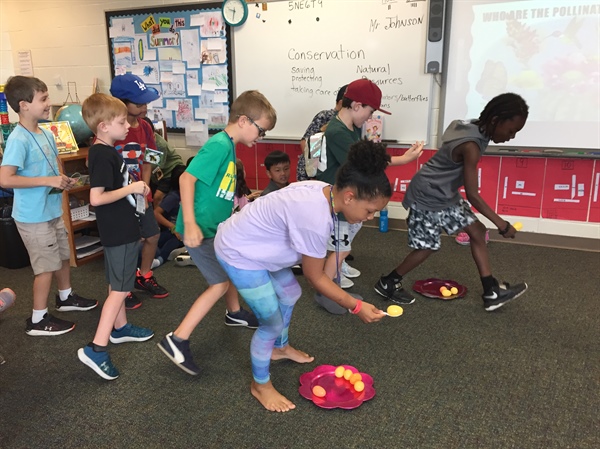Educational guide aims to spread importance of pollinators to students
December 7, 2020
A new educational tool from the Richland Soil and Water Conservation District (RSWCD) features lessons aimed at the next generation of conservationists in Richland County and beyond.
The RSWCD recently published a pollinator conservation educators’ guide for teachers, informal educators and parents to use with students in grades one through six. Free to download online, the guide includes instructions and printable materials for four hands-on activities on pollination and pollinator conservation.
The guide was created by Mary Hannah Lindsay, community outreach coordinator for the RSWCD, and Chanda Cooper, Richland County conservation education analyst. The authors developed the activities, then piloted them with various age groups at local schools.
“We wanted to share the lessons with other educators, and creating a guide seemed like the easiest way to do that,” Lindsay said. “While we only provide classroom presentations for students within Richland County, this guide will allow educators across the state, and even the country, to facilitate these activities and to learn about the importance of pollinator conservation.”
Pollinators such as bees, butterflies, birds and bats play a key role in the life cycle of many flowering plants. These animals carry pollen from flower to flower, enabling plants to produce seeds. In turn, those seeds allow for new generations of plants to grow.
In a typical year, the RSWCD reaches thousands of County students through its classroom programming, which incorporates hands-on learning to help students engage with the material. Pollinator lessons in the new guide add to previous instruction on soil health, watersheds and composting.
“This guide provides activities that actively engage students and help them make connections between biological concepts and conservation solutions,” Lindsay said.
The guide ties in with the National Association of Conservation Districts’ (NACD) 2020 environmental stewardship theme, “Where Would We BEE Without Pollinators?” It’s also featured on the NACD’s educational resources website.
“The Richland SWCD has developed a valuable resource for not just their own community, but for conservation districts and communities around the country,” said Candice Abinanti, NACD Southeast Region representative. “The educators’ guide contains a wealth of information about the value of diverse pollinators and their habitats and configures it into hands-on learning activities for elementary school children.”












